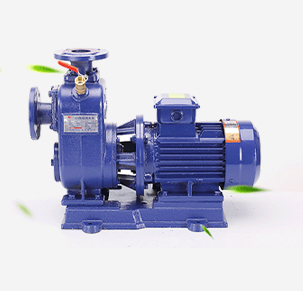Khmer
- Afrikaans
- Albanian
- Amharic
- Arabic
- Armenian
- Azerbaijani
- Basque
- Belarusian
- Bengali
- Bosnian
- Bulgarian
- Catalan
- Cebuano
- Corsican
- Croatian
- Czech
- Danish
- Dutch
- English
- Esperanto
- Estonian
- Finnish
- French
- Frisian
- Galician
- Georgian
- German
- Greek
- Gujarati
- Haitian Creole
- hausa
- hawaiian
- Hebrew
- Hindi
- Miao
- Hungarian
- Icelandic
- igbo
- Indonesian
- irish
- Italian
- Japanese
- Javanese
- Kannada
- kazakh
- Khmer
- Rwandese
- Korean
- Kurdish
- Kyrgyz
- Lao
- Latin
- Latvian
- Lithuanian
- Luxembourgish
- Macedonian
- Malgashi
- Malay
- Malayalam
- Maltese
- Maori
- Marathi
- Mongolian
- Myanmar
- Nepali
- Norwegian
- Norwegian
- Occitan
- Pashto
- Persian
- Polish
- Portuguese
- Punjabi
- Romanian
- Russian
- Samoan
- Scottish Gaelic
- Serbian
- Sesotho
- Shona
- Sindhi
- Sinhala
- Slovak
- Slovenian
- Somali
- Spanish
- Sundanese
- Swahili
- Swedish
- Tagalog
- Tajik
- Tamil
- Tatar
- Telugu
- Thai
- Turkish
- Turkmen
- Ukrainian
- Urdu
- Uighur
- Uzbek
- Vietnamese
- Welsh
- Bantu
- Yiddish
- Yoruba
- Zulu
Telephone: +86 13120555503
Email: frank@cypump.com
ធ្នូ . 03, 2024 23:05 Back to list
Effective Slurry Management Using Sump Pumps for Industrial Applications and Wastewater Treatment
Understanding Slurry Sump Pumps Functionality and Applications
Slurry sump pumps play a critical role in various industrial applications, particularly in the handling of heavy, viscous materials. These pumps are specifically designed to manage the transport of slurries, which are mixtures of liquids and solids. Commonly used in mining, construction, and wastewater treatment, slurry sump pumps ensure efficient fluid movement while maintaining the integrity of the materials being processed.
What is a Slurry Sump Pump?
A slurry sump pump is a type of centrifugal pump engineered to handle high-density slurries that contain abrasive particles. Unlike standard pumps, which may get clogged or damaged when exposed to solid materials, slurry sump pumps feature robust designs, including specialized impellers and wear-resistant materials. This makes them capable of moving slurries that consist of sand, gravel, or other coarse solids suspended in water or other fluids.
How Do Slurry Sump Pumps Work?
The functionality of slurry sump pumps relates to their design and operational principles. When the pump is submerged in a series of sumps or holding tanks, the impeller spins, creating a centrifugal force that sucks the slurry into the pump. This mechanical action pushes the slurry out of the discharge port and into the desired location.
Key features of slurry sump pumps include
1. Heavy-Duty Construction Most slurry pumps are made from high-strength materials to withstand the erosive nature of the slurries they transport. 2. Wide Openings The inlets and impellers are typically larger than those in standard pumps to facilitate the easy movement of larger solid particles.
3. Adjustable Wear Parts Many slurry pumps come equipped with wear plates or adjustable impellers that can be replaced as they wear down, extending the lifespan of the pump.
4. Variable Speed Drives To accommodate different process requirements, many slurry pumps can be outfitted with variable speed drives, allowing operators to adjust the flow rates based on the specific needs of their applications.
Applications of Slurry Sump Pumps
slurry sump pump

The versatility of slurry sump pumps allows them to be employed in various industries. Some primary applications include
1. Mining and Mineral Processing Slurry pumps are essential for transporting ore, tailings, and other heavy materials from mines to processing plants, ensuring that operations run smoothly.
2. Construction In construction sites, these pumps help manage the removal of water mixed with soil, mud, and debris, which can accumulate during excavation or site preparation.
3. Wastewater Treatment Slurry sump pumps are employed in sewage treatment facilities to move sludge through various treatment stages without clogging the system.
4. Pulp and Paper Industry In this sector, slurry pumps manage a variety of materials, from wood chips to chemical slurries produced during the papermaking process.
5. Industrial Processes Many manufacturers utilize slurry pumps for transporting viscous mixtures in processes such as chemical production, where maintaining flow consistency is crucial.
Maintenance and Best Practices
To ensure optimal performance and longevity of a slurry sump pump, regular maintenance is essential. Key practices include
- Routine Inspections Regularly check for wear and tear on impellers and other components to avoid unexpected failures. - Proper Lubrication Ensure that all moving parts are adequately lubricated according to the manufacturer’s specifications. - Clear Debris Always keep the sump area clear of excess materials to prevent clogging and maintain efficient operation. - Monitor Performance Keep an eye on flow rates and operational efficiency, adjusting settings as necessary to adapt to changes in slurry characteristics.
In conclusion, slurry sump pumps are indispensable tools in various industries where the movement of thick, abrasive slurries is required. Their robust design and specialized capabilities enable efficient handling of challenging materials, contributing to the productivity and safety of operations across many sectors. Understanding their functionality, applications, and maintenance can help businesses maximize the performance and reliability of their slurry transport systems.
-
pipeline pump - Chi Yuan Pumps Co., LTD.|High Efficiency&Low Noise
NewsJul.31,2025
-
ISG Series Vertical Pipeline Pump - Chi Yuan Pumps Co., LTD.|High Efficiency, Energy Saving, Low Noise
NewsJul.30,2025
-
ISG Series Vertical Pipeline Pump- Chi Yuan Pumps|High Efficiency&Low Noise
NewsJul.30,2025
-
ISG Series Vertical Pipeline Pump-Chi Yuan Pumps Co., LTD.|High Efficiency&Energy Conservation
NewsJul.30,2025
-
ISG Series Vertical Pipeline Pump - Chi Yuan Pumps Co., LTD.|Advanced Hydraulic Design&Energy-Efficient Solutions
NewsJul.30,2025
-
ISG Series Vertical Pipeline Pump - Chi Yuan Pumps Co., LTD.
NewsJul.30,2025










